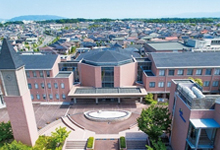Mr. Hiroshi Miyawaki (currently the Center for Human Expansion Research, National Institute of Advanced Industrial Science and Technology) and Professor Shu Morioka, who are graduates of the doctoral program at Kio University Graduate School, and Takeshi Otani, director of the Rehabilitation Department of the Nijukai Ishikawa Hospital, are treating post-stroke patients. The targeted studies found that patients with motor disorders had a wider tolerance for prediction errors for self-other attribution, and that post-stroke motor disorders could change the relationship between prediction errors and motor subjectivity. Revealed.
Distinguishing between self-derived sensations and external-derived sensations is called self-attribution, and when the sensory results are self-attributed, a sense of motor subjectivity that feels "I control my movement" occurs.This sense of subjectivity to movement is said to occur when the error is small, based on the prediction error obtained from the comparison and collation of the sensory feedback of movement and its internal prediction.
However, in post-stroke patients, the comparison and matching system may be disrupted through sensorimotor disorders, changing the relationship between prediction error and motor subjectivity.Therefore, we invited post-stroke patient A with moderate movement disorder, post-stroke patient B with very mild movement disorder, and three healthy adults to participate in the experiment and verified this.
As a result, in patient A who has a stronger movement disorder than in patient B who has a mild movement disorder and a healthy person, the judgment error (misattribution) of self-other attribution is large, and the correlation between self-other judgment and prediction error is low. Was recognized.
In other words, these results indicate that the permissible range of prediction error for self-other attribution may be expanded in patients with movement disorders, and the correlation between prediction error and motor subjectivity in post-stroke movement disorders. It is suggested to transform.
In the future, the researchers hope to clarify how patients with movement disorders are attributed to themselves and others, and the effects of their transformation on physical function.
Paper information:[Journal of Clinical Medicine] Impaired Relationship between Sense of Agency and Prediction Error Due to Post-Stroke Sensorimotor Deficits

